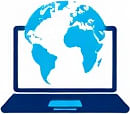Note-Taking Software Options for Remote Workers
 by Marlene Keeling
by Marlene Keeling
Discover essential note-taking software that boosts productivity and collaboration for remote teams. Learn about popular tools, their features, and how they support work-life balance in distributed work environments, helping you stay organized and efficient.
Remote work relies heavily on effective tools to maintain organization and foster teamwork. For many professionals, note-taking software serves as a core element in daily routines. It allows individuals to capture ideas, track projects, and share information seamlessly.
In the context of remote setups, these tools go beyond simple note storage. They enable better communication among team members and help manage workloads. For instance, freelancers often use them to organize client notes and deadlines, while managers rely on shared features to coordinate virtual meetings.
One popular option is Evernote, which offers a user-friendly interface for creating and organizing notes. This software includes web clipping and search functions that make it easy to find information quickly. For remote workers, Evernote's ability to sync across devices ensures that notes are always accessible, supporting consistent productivity during long work hours.
Another strong choice is Microsoft OneNote, known for its integration with other Microsoft products. This makes it ideal for businesses using Office suites. OneNote provides notebooks that can be shared in real-time, allowing virtual teams to collaborate on documents without needing physical presence. Such features are particularly useful for maintaining team alignment in remote environments.
Google Keep stands out for its simplicity and accessibility. As a free tool, it appeals to those starting with remote work. Users can create color-coded notes and set reminders, which helps in balancing professional tasks with personal life. For example, a remote worker might use Google Keep to jot down meeting points while also noting family schedules, promoting overall well-being.
Notion has gained attention for its versatility as an all-in-one workspace. It combines note-taking with databases and wikis, making it suitable for complex projects. In remote settings, Notion's templates and sharing options facilitate group work, enabling teams to build shared knowledge bases. This can reduce miscommunication and enhance project outcomes.
Benefits for Productivity
Using note-taking software in remote work can significantly improve efficiency. These tools help users prioritize tasks and reduce mental clutter, leading to higher output. For instance, by organizing notes into categories, workers can quickly reference important details during calls or solo sessions.
Moreover, many options include tagging and search capabilities, which streamline workflows. A manager overseeing a distributed team might tag notes by project phase, ensuring that everyone stays on track. This level of organization contributes to better work-life balance by minimizing overtime spent searching for information.
Enhancing Virtual Collaboration
Collaboration is key in remote environments, and note-taking software often includes features for group interaction. Tools like Evernote and Notion allow multiple users to edit notes simultaneously, fostering a sense of unity despite physical distances. This real-time editing can speed up feedback loops and decision-making processes.
For businesses transitioning to remote models, these capabilities are essential. Teams can create shared notebooks for brainstorming or documenting processes, which helps in building a cohesive work culture. Additionally, some software supports integrations with communication platforms, making it easier to link notes to emails or chats.
Choosing the Right Software
Selecting the best note-taking software depends on specific needs. Factors to consider include ease of use, cost, and compatibility with existing systems. For beginners, a simple tool like Google Keep might be ideal, while advanced users may prefer Notion's comprehensive features.
Cost is another important aspect. Free versions are available for most options, but premium plans offer enhanced storage and collaboration tools. Remote workers should evaluate these based on their budget and requirements.
Tips for Effective Use
To get the most from note-taking software, establish a routine for regular updates. This could involve daily reviews to keep notes current and relevant. Using folders or labels can further organize content, making it simpler to locate items during busy periods.
For virtual teams, encourage consistent naming conventions and access controls to maintain security. Training sessions can also help new users adapt quickly, ensuring that the tool supports rather than hinders productivity.
In summary, incorporating note-taking software into remote work practices offers clear advantages. It aids in managing daily tasks, supports team efforts, and contributes to a healthier balance between work and personal life. By exploring these options, remote workers, freelancers, and managers can find tools that fit their unique situations and enhance overall performance.
Final Thoughts
As remote work continues to grow, the role of effective tools becomes more evident. With the right note-taking software, individuals and teams can achieve greater efficiency and collaboration. Exploring these options today can lead to lasting improvements in work dynamics.
